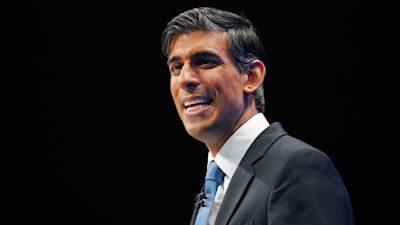Insight
Rishi Sunak’s big Budget judgement is how to divide his recovery windfall

As I said on News at Ten last night, the chancellor’s Budget today will be more generous than many expected - because economic growth is much faster than the Office for Budget Responsibility forecast in March. As I also pointed out, this faster growth is a double-edged sword. On the one hand it is inflating tax revenues, which is good for the public finances.
On the other, it is inflating prices, due to capacity constraints and associate supply chain problems, which is bad for the cost of living.
On Tuesday's News At Ten, Political Editor Robert Peston looked ahead to what is expected to be a "generous" Budget
Of course if Rishi Sunak has more to spend than he thought even in the summer - when he signalled a definitive break with austerity by saying day-to-day spending would rise every year for three years by a significant three percent more than inflation - his big budget judgement is how to divvy up his windfall between: 1) Benefit increases and tax cuts to help poorer people cope with the surge in the cost of living. 2) More cash to help with a really serious public service crises, such as the log jam in the courts, local authorities under extreme pressure and children from the poorest households whose education was hardest hit by Covid-19. 3) The end of those massive Covid-19 pandemic deficits and a clear route to matching day-to-day spending with tax revenues within three years (achieving a surplus on the “current budget”, in the jargon). In Sunak’s 55 minute speech at around 12.30 today, I would expect to hear about action on all three fronts (my colleague Anushka Asthana reported a few weeks ago that the Treasury was looking at adjusting so-called taper rates on Universal Credit, which would mean low earners would lose less benefit when the minimum wage increases by 6.6% next April). Sunak will be judged as a chancellor on his revealed preferences, his choices, when helping the poorest versus fixing austerity-starved public services versus stabilising the public finances. It is a big day for him - and for us.